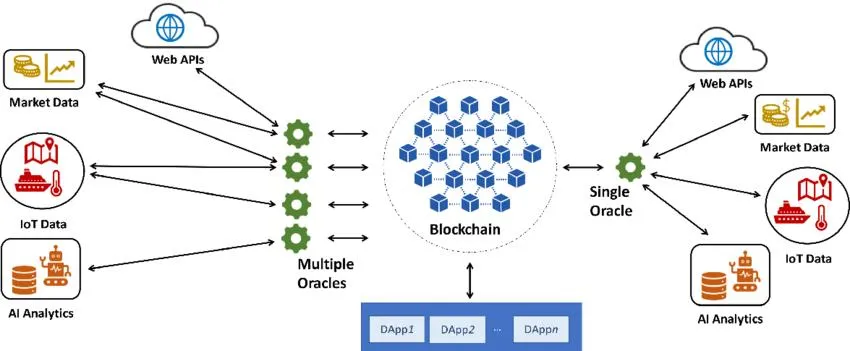
Imagine trying to bake a cake without knowing the oven’s temperature or whether you actually have sugar in the pantry. That’s a bit like how blockchains work on their own - they’re great for securely recording transactions, but they can’t see what’s happening in the real world. That’s where blockchain oracles come in.
An oracle is a bridge between a blockchain and outside data. It fetches real-world information - like the current price of Bitcoin, tomorrow’s weather forecast, or the outcome of a football match - and feeds it into a smart contract. Suddenly, decentralized apps can react to events beyond their own network.
Take DeFi as an example. Lending platforms like AAVE and Compound need reliable price feeds to know if loans are still safely collateralized. If the price of a token tanks, the system must trigger a liquidation to protect everyone’s funds. Chainlink, one of the most popular oracle networks, gathers price data from multiple exchanges and delivers an average rate on-chain. By using many independent data sources rather than just one, it cuts down the risk of someone manipulating the price feed.
Or consider a crop-insurance smart contract that pays farmers if it doesn’t rain. A weather oracle can pull data from a trusted meteorological service, and if rainfall stays below a certain threshold during the growing season, the contract automatically compensates the farmer - no paperwork, no middlemen, just code doing its job.
Even sports betting has gone on-chain. Platforms like Polymarket use oracles to confirm game results. Once the match ends, the oracle reports the winner, and payouts to gamblers happen instantly and transparently.
Of course, oracles aren’t perfect. If a single oracle goes offline or is hacked, the smart contract that depends on it could malfunction. That’s why many projects use decentralized oracle networks - multiple oracles working together to verify and cross-check data.
In short, oracles transform blockchains from closed systems into powerful tools that can interact with our world. They open the door to everything from automated insurance and transparent lending to real-time gaming and beyond. Next time you see a smart contract doing something “magical,” there’s a good chance an oracle is making it all happen. Would you trust an oracle-powered app to handle your data or money? Share your thoughts below!